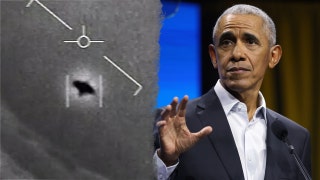Doctor on saving COVID-19 patient with ‘proning’ treatment
Dr. Christopher Voscopoulos, ICU medical director at Southern Hills Hospital in Las Vegas, explains how the ‘proning’ treatment takes pressure off the lungs by turning the patient onto their stomach.
Get all the latest news on coronavirus and more delivered daily to your inbox. Sign up here
A technique called "proning" can be the difference between life and death for critical COVID-19 patients, a Las Vegas ICU doctor said Friday.
CLICK HERE FOR FULL CORONAVIRUS COVERAGE
Appearing on "America's Newsroom," Southern Hills Hospital ICU Medical Director Dr. Christopher Voscopoulos explained that the medical center had learned the technique from other physicians in virus hot spots who passed along the "especially valuable" information.
"What proning is, is that normally we have patients lie on their back," he explained. "When they lie on their back, their heart applies pressure on the back of their lungs and it closes off those lungs just a little."
"And, what we do is we simply turn people over and they lie on their stomach. By doing that, the heart falls off the lungs and opens up a little bit more of the lung," he stated further. "You have to remember that these are people fighting for their life. And so, when we open up a little more lung, that's the difference between life and death."
One of their success stories, a 68-year-old man named Alfred, was particularly personal for Voscopoulos as he was one of the first coronavirus patients admitted to the ICU and one of their most critical patients.
"And so, this was one of our first tests," he told Henry. "To see this as our outcome was hugely motivating to our entire staff for the whole purpose of why we are here."
CLICK HERE FOR THE FOX NEWS APP
"Oftentimes, as critical care doctors, when we first encounter patients, they are unconscious. They have a breathing tube in, and they're on a breathing machine, and we don't have the opportunity to meet that person as an individual," Voscopoulos continued.
"But, to the varying degrees of consciousness that that patient might have during their ICU stay, our nurses and the rest of our staff did an amazing job to keep him motivated so that he had the will to fight," he concluded. "And, that's part of the outcome we had."









































